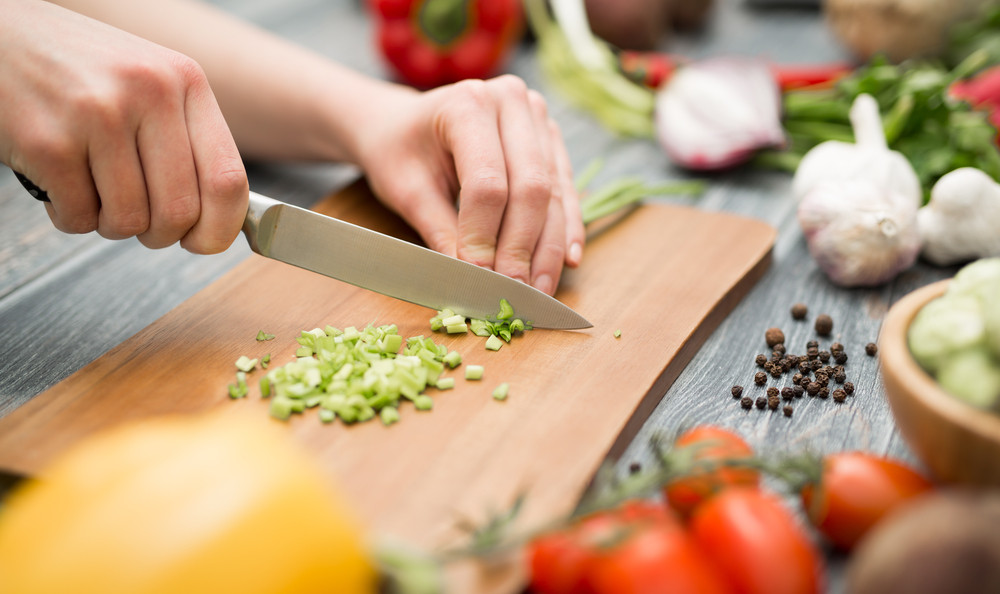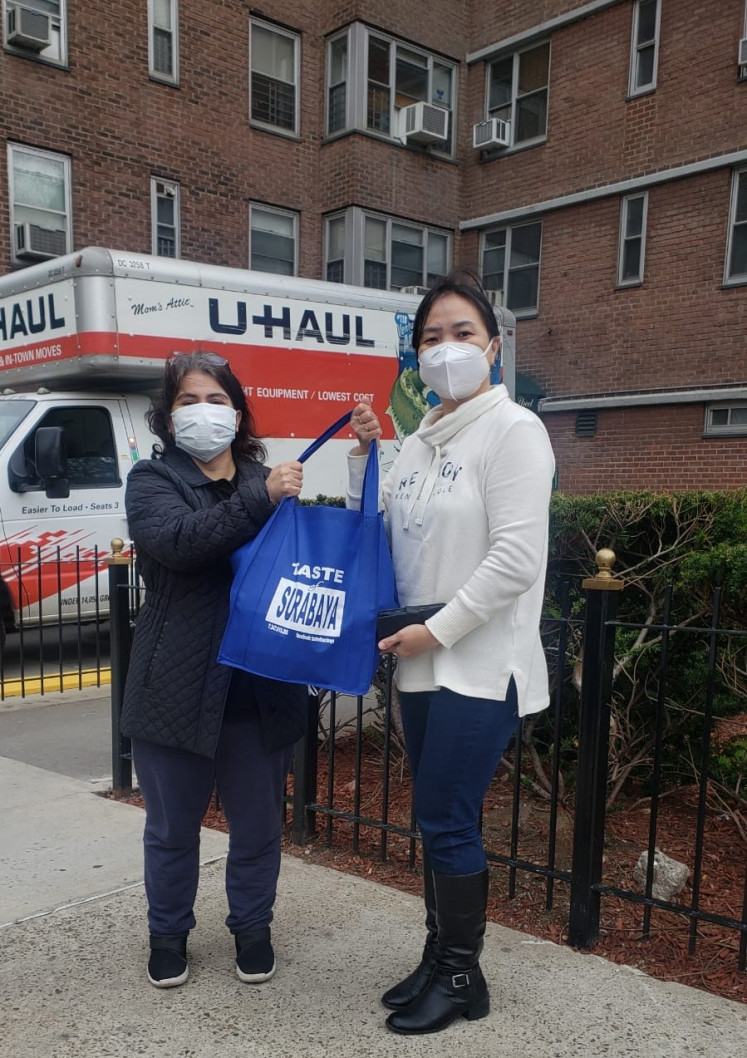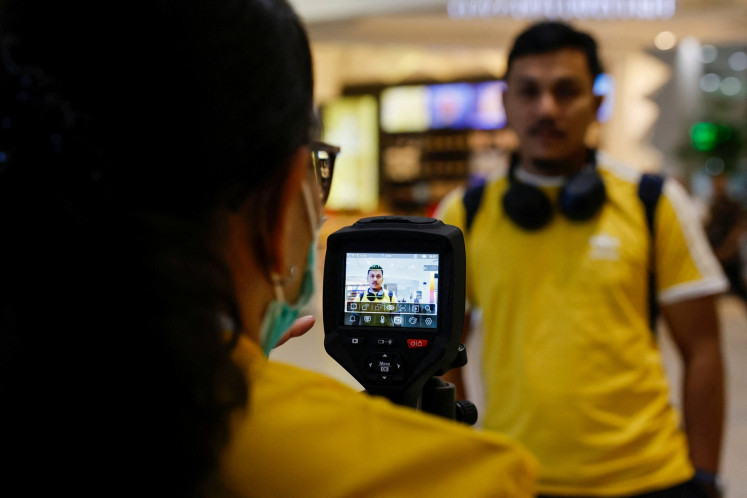Popular Reads
Top Results
Can't find what you're looking for?
View all search resultsPopular Reads
Top Results
Can't find what you're looking for?
View all search resultsIndonesian-American chefs stay afloat and give back during pandemic
Throughout the United States, Indonesian-American restaurateurs have adapted their businesses to deliveries and takeouts in response to COVID-19 and the resulting shutdowns.
Change text size
Gift Premium Articles
to Anyone
H
omemade chili sauce, bakso (meatballs), sambal goreng ati (fried chicken liver with diced potato and beans) and bebek betutu (Balinese slow-cooked duck) are a few of the dishes chef Siska Silitonga has been whipping up over the past few months. And those in California’s Bay Area who want to try Siska's dishes don’t even have to leave their homes -- the food will come to them.
Throughout the United States, Indonesian-American restaurateurs have adapted their businesses to delivery and take out in response to COVID-19 and the resulting shutdowns. From the east coast to the west, chefs have managed to stay afloat while still giving back to their communities.
Siska is the chef and owner of ChiliCali, an Indonesian catering and pop-up restaurant in San Francisco.
She was introduced to the culinary world at a young age. Siska grew up helping at her mother’s small restaurant in the port of Tanjung Priok in North Jakarta. After moving to San Francisco for college, she noticed the lack of Indonesian food and representation.
“I felt so lonely,” said Siska. “I missed my community. I was upset that Indonesian food is not represented here.”
That’s when ChiliCali began. Siska started by holding dinners for friends, but soon people suggested she grow her operation into a business. Through fundraising, she sold her homemade sauces and then, in 2015, started doing popups where she would cook with a small staff and sell dishes to the public at various locations.
Siska was looking for investors to expand ChiliCali right before the pandemic hit. Opening a restaurant is out of the question now, and she’s had to shift entirely to a delivery model to survive.
Through social media, Siska posts menus each week. Before the pandemic, most of her customers were not Indonesian. Now, she serves 150 people a week, almost all of whom are Indonesians.
Siska thinks the crisis has intensified homesickness.
“We’re worried about our families. So the food is, in a way, a little comfort that can bridge you, your memory,” she said.
Siska also noticed an increase in Indonesians who want to represent their community by starting their own businesses since the pandemic. In response, she’s providing guidance and advice to those who are new to entrepreneurship.
One such newcomer is Yohanes Ng, an Indonesian-American district manager for a catering company.
Though he still has his job, Yohanes worries constantly about what will happen in the days to come and feels that he may be fired like many of his former coworkers. The job insecurity prompted him to start working toward another profession of his own making.
Yohanes began to make bakso for his friends, delivering the soup to those who wanted it. The response was overwhelmingly positive, so he consulted Siska to see what steps he should take next.
Yohanes built a social media presence with a strong following of potential customers. He also started the process of getting licensed and finding a kitchen to rent.
His goal is to eventually turn his passion for cooking into a full-time job. Yohanes also hopes to bring the Indonesian-American community together and represent his culture.
“Maybe a silver lining of this pandemic is that we will see more and more Indonesian businesses,” said Siska.
Read also: New layout, new experience: Restaurateurs prepare for reopening
Across the country in New York City, another chef has adapted in a similar fashion.
Fefe Anggono, founder of the New York Indonesian Food Bazaar, was also forced to shift to takeouts.
The bazaar was a place where vendors, including Fefe, could sell their homemade food and where customers could find high-quality Indonesian cuisine. But when the pandemic crippled New York City, the bazaar was unable to stay open.
Instead, Fefe took a similar approach to ChiliCali and posted menus on social media. She cooked at home and delivered all over the five boroughs.
Fefe Anggono (left) delivers food to a customer. (Courtesy of Fefe Anggono/File)Fefe didn’t stop there. With donations from the community and her own money, she started delivering free meals to hospital healthcare workers throughout New York City. In addition to her Indonesian dishes, she also provided bottled water and fresh fruit.
Last week, Fefe decided to help her vendors from the bazaar. She moved the bazaar online, open to any of her vendors who want to start selling food again. People can now order online, and she delivers everything, including the food from her vendors.
In Philadelphia, yet another Indonesian-American chef is working to give back, despite her own challenges.
Diana Widjojo is the chef and co-owner of Hardena, a James Beard Award semifinalist restaurant. Diana and her sister took over the restaurant from their parents a few years ago. They were hoping to expand soon, but the pandemic halted their plans.
Hardena has been able to stay afloat thanks to takeout orders and funding from Off Their Plate, a nonprofit that raises money to keep restaurants operating during the pandemic.
Diana has also been giving back to those who need help. Along with others in her community, she started gathering supplies to donate. What started as just extra face masks quickly turned into donations of rice, noodles, fresh produce, eggs and more.
Our way of peaceful protest & giving back to the community ❤️
A post shared by Hardena (@hardenaphilly) on
Like most restaurants, Hardena is still struggling. Ingredients, many of which are imported from Indonesia, have skyrocketed in price, all while the number of customers has dropped. But Widjojo hasn’t lost hope, even in the face of uncertainty.
“We never see things in a negative view,” said Diana. “I know we’ll always be here.” (kes)
__________
The writer is an intern at The Jakarta Post.












